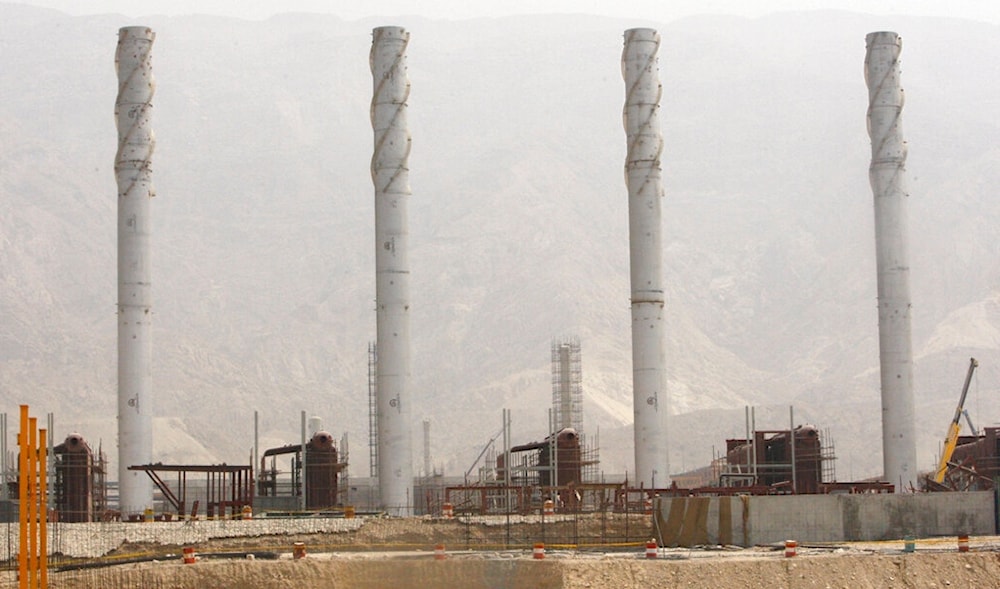Iran to increase gas extraction by 500 million cu ft per day
A contractor involved in the project has revealed that the joint Iran-Qatar gas field would expedite gas extraction and production by 500 million cubic feet.
-

Chimneys stand high above part of South Pars gas field facility, on the northern coast of the Gulf, in Assalouyeh, Iran, Monday, July 19, 2010 (AP)
Iran's gas extraction capacity will increase by 50% from its current daily output, according to a contractor involved in an oil project in the Islamic Republic.
Ehsan Mohammadi, the contractor for the Belal Gas Field development project, stated that the country's gas extraction capacity is expected to rise by 500 million cubic feet (14.2 million cubic meters) per day once the development of the gas field is completed.
Mohammadi shared this information on Tuesday, during the installation of the wellhead jacket for the Belal Gas Field, located at the shared border between Iran and Qatar in the Persian Gulf.
Speaking on the eve of the anniversary of the nationalization of Iran’s oil industry, he noted that drilling operations for the joint Iran-Qatar gas field would begin once the wellhead jacket and rig are installed.
He also mentioned that the Iranian Offshore Engineering and Construction Company is developing the well deck, while POSCO is responsible for the drilling process.
Highlighting that the gas field includes eight wells, he added that Iran’s gas condensate production would also increase by 10,000 barrels per day.
The National Iranian Oil Company has appointed PetroPars Company as the general contractor for the Belal Gas Field development project.
Iran's position firm despite US's targeting of oil sector
The US Treasury Department’s announcement of new sanctions on Iran's energy sector on March 13, 2024, follows Washington’s continued enforcement of President Donald Trump’s maximum pressure campaign, a policy that paradoxically claims to seek diplomatic engagement while intensifying economic aggression.
Oil and natural gas extraction are key components of Iran's economy, as the country is among the world leaders in both energy reserves and production.
The sector has come under immense pressure due to unilateral sanctions issued by the West, affecting its development and upkeep.
Despite these challenges, Iran has continuously adapted, leveraging alternative trade mechanisms and strategic partnerships to sustain its energy exports and maintain access to international markets.
Now, the Trump administration aims to place further pressure on Iran, hoping that Tehran will accept an exploitative nuclear agreement. However, Iran's leadership has firmly stated that it will not negotiate under pressure, nor will it compromise on matters vital to its national security.
Read more: Iran unfazed by Trump's oil export threats: Pezeshkian

 3 Min Read
3 Min Read








